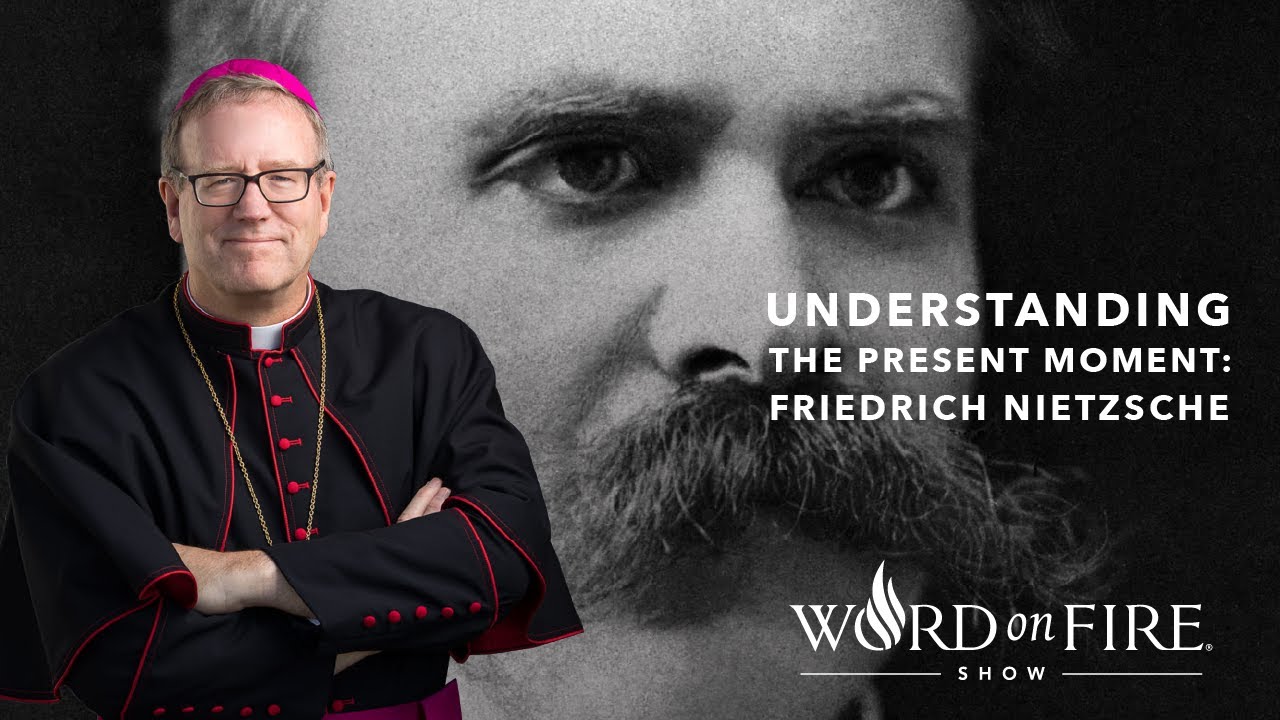Becoming Who You Really Are - The Philosophy of Friedrich Nietzsche
Summary
TLDRFriedrich Nietzsche, born in 1844, was a key figure in modern philosophy, grappling with the decline of religious faith and the rise of nihilism. His work, including 'Thus Spoke Zarathustra', proposed the Übermensch as an ideal of individual strength and creativity, challenging conventional morality and advocating self-overcoming. Despite personal struggles and mental health issues, Nietzsche's ideas on embracing life's suffering and the pursuit of personal power continue to influence contemporary thought.
Takeaways
- 🎓 Nietzsche was a profoundly influential thinker who foresaw and responded to the decline of Western religious faith and the rise of nihilism.
- 🏔 Born in 1844 in Saxony, Prussia, Nietzsche's early life was marked by significant loss, shaping his philosophical outlook on suffering and morality.
- 📚 Initially studying theology, Nietzsche's intellectual development led him to abandon Christian faith in favor of philology, the study of language history.
- 👨🏫 Despite his young age, Nietzsche became a professor of classical philology at the University of Basel, a testament to his exceptional academic achievements.
- 🚶♂️ Health issues and dissatisfaction with academia led Nietzsche to resign his professorship, leading a nomadic life and focusing on philosophical writing.
- 📖 Nietzsche's works, such as 'Human All Too Human' and 'Thus Spoke Zarathustra', challenged conventional morality and proposed new perspectives on meaning and value.
- 🛑 The famous phrase 'God is dead' encapsulates Nietzsche's view on the collapse of European morality following the decline of Christian faith.
- 🌐 Nietzsche rejected the idea of universal truth, advocating for subjective interpretations and the importance of individual creativity and expression.
- 🦸♂️ The concept of the 'Übermensch' or 'Overman' represents an ideal of individual strength, self-mastery, and the pursuit of personal greatness.
- 💪 Nietzsche's philosophy emphasizes the 'will to power', suggesting that the desire for personal growth and self-improvement is fundamental to life's meaning.
- 🧘♂️ Suffering, according to Nietzsche, should be embraced as a means to accumulate strength and is essential for the process of 'self-overcoming'.
- 💔 Despite his profound impact, Nietzsche's life was marked by personal struggles, culminating in a mental breakdown and his eventual death at 55.
- 📚 Posthumously, Nietzsche's work gained recognition and influenced modern thought, though his ideas have been subject to various interpretations and criticisms.
Q & A
Who is Friedrich Nietzsche and why is he considered significant in Western history?
-Friedrich Nietzsche is one of the most influential and significant thinkers of modern history, known for predicting and addressing the shift in Western religious faith and proposing revolutionary ideas as solutions. He stands at a crossroads where traditional religious faith began to crumble, and he sought to forge a new path away from both religious faith and nihilism towards new meaning and human value.
What was Nietzsche's early life like, and how did it influence his philosophical views?
-Nietzsche was born in 1844 in Saxony, Prussia, to a modest family. His father was a Lutheran pastor, immersing Nietzsche in Christian faith from an early age. However, the suffering and death of his father and brother likely laid some groundwork for Nietzsche's later work, challenging the reconcilable pain and suffering experienced by good, underserving people.
What led Nietzsche to abandon his Christian faith during his university years?
-Nietzsche initially studied theology at the University of Bonn, excelling in Christian theology. However, after one semester, his growing intellectual sharpness and exposure to various critiques of Christianity led him to abandon his Christian faith, shedding the skin of innocence and blind devotion.
How did Nietzsche's academic career progress after leaving the study of theology?
-After leaving theology, Nietzsche studied philology, the history of language, at the University of Leipzig. He excelled in this field and was hired as a professor of classical philology at the University of Basel while still in his mid-twenties, making him the youngest professor ever hired there.
Why did Nietzsche leave his professorship at the University of Basel?
-Nietzsche left his position at the University of Basel partly due to growing dissatisfaction and a sense of constraint within academia, and partly due to his deteriorating health, which included genetic ailments and what is believed to have been syphilis contracted at a brothel.
How did Nietzsche's personal life and health challenges influence his philosophical work?
-Nietzsche's personal life was marked by isolation, poor health, failed love, and depressive states. Despite these challenges, he spent most of his time walking, thinking, and writing, using philosophy as a means to find solace, meaning, and reason to continue.
What are some of Nietzsche's most influential works?
-Some of Nietzsche's most influential works include 'Human All Too Human,' 'The Gay Science,' 'Thus Spoke Zarathustra,' 'Beyond Good and Evil,' and 'On the Genealogy of Morals.' These works laid the groundwork for a new philosophy that challenged contemporary certainties and notions of good and evil.
What does Nietzsche's famous quote 'God is dead' signify?
-The quote 'God is dead' signifies Nietzsche's stark concern and warning about the collapse of Christian faith and the subsequent collapse of European morality, rationales, and values. It is not a celebration but a critique of humanity's lost faith and the potential descent into despair and nihilism.
What is the concept of the 'Übermensch' or 'Overman' in Nietzsche's philosophy?
-The 'Übermensch' or 'Overman' is a central concept in Nietzsche's philosophy, representing an idealized version of oneself—a powerful being who has overcome all fears and deficiencies. It is a goal to strive towards, embodying personal growth and the pursuit of subjective greatness, independent of collective experiences or cultural mechanisms.
What does Nietzsche propose as the fundamental drive in all living beings?
-Nietzsche proposes the 'will to power' as the fundamental drive in all living beings—an insatiable desire to manifest power. This will to power is manifested in the desire for personal growth and is satisfied in the pursuit of that growth, representing a synchronization with life itself.
How did Nietzsche's mental health decline, and what was the final episode that led to his madness?
-Nietzsche's mental health declined over time, showing increasing signs of instability. At the age of forty-four, after witnessing a horse being flogged, he experienced a mental breakdown, rushing to console the horse and exclaiming, 'I understand you, I understand you.' This marked the beginning of his complete madness and eventual catatonia.
What is the legacy of Nietzsche's work, and how has it been received posthumously?
-Despite little success during his lifetime, Nietzsche's work gained massive recognition and a worldwide following after his death. His ideas have become engrained in modern thinking, influencing culture and philosophy. However, his work has also been misinterpreted and misused, leading to misguided applications.
What are some of the critiques and challenges to Nietzsche's philosophy?
-Nietzsche's philosophy faces critiques regarding the concept of self-overcoming, sacrifice, and greatness. Questions arise about whether suffering in the pursuit of unattainable goals is truly beneficial and how one can affirm life if their interpretation of it is not inherently positive. Additionally, his lack of a linear or systematic structure and self-contradictions open his ideas to various interpretations and debates.
Outlines

هذا القسم متوفر فقط للمشتركين. يرجى الترقية للوصول إلى هذه الميزة.
قم بالترقية الآنMindmap

هذا القسم متوفر فقط للمشتركين. يرجى الترقية للوصول إلى هذه الميزة.
قم بالترقية الآنKeywords

هذا القسم متوفر فقط للمشتركين. يرجى الترقية للوصول إلى هذه الميزة.
قم بالترقية الآنHighlights

هذا القسم متوفر فقط للمشتركين. يرجى الترقية للوصول إلى هذه الميزة.
قم بالترقية الآنTranscripts

هذا القسم متوفر فقط للمشتركين. يرجى الترقية للوصول إلى هذه الميزة.
قم بالترقية الآنتصفح المزيد من مقاطع الفيديو ذات الصلة

Nihilisme Membunuh Nilai Tradisional | Filosofi Friedrich Nietzsche | Philosopher #1

Understanding the Present Moment #2 (Friedrich Nietzsche)

Nietzsche: God Is Dead

Important Literary & Cultural Terms and their Proponents - Part 4 | UGC NET ENGLISHLITERATURE | CUET

Filosofia -- Nietzsche e la volontà di potenza -- Maurizio Ferraris

Islam Video Kris Snyder Al Ghazali
5.0 / 5 (0 votes)
